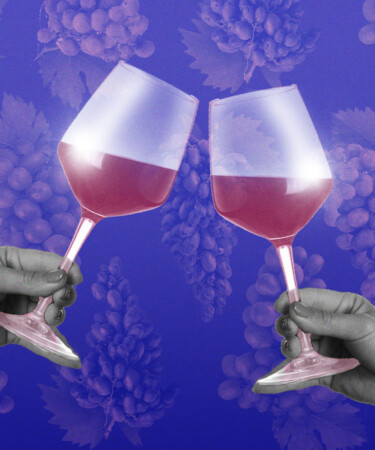The term natural wine is often described as loosely defined and unregulated. However, if you are a frequent natural wine drinker, you’re likely familiar with a few common styles, such as pét-nat and piquette, that have gained popularity over the years. Recently a lesser-known sub-genre, called “zero-zero,” has crept onto the scene and is quietly gaining ground as the latest trend in natural wine. To learn more about this mysterious yet popular style VinePair chatted with Troy Bowen, sommelier and founder of Denver’s natural wine bar Noble Riot.
Bowen, who first took an interest in natural wine when working with New York-based natural wine importer Jenny & Francois, is extremely passionate about guiding guests through their experience with the style. “Natural wine is already loosely defined and having styles like zero-zero can complicate things even further,” he says. But fear not, he says, because the term is less complicated than it sounds.
As a sub-section of natural wine, zero-zero commonly refers to two styles of winemaking. The first is specific to wines made with the addition of zero sulfur (a commonly used preservative) and zero commercial yeast. The second is a broader reference and is most often the case for wines categorized as zero-zero. “In this instance, nothing is added or removed during the winemaking process that is not naturally present in the wine,” Bowen says. This means no acidification agents, no color enhancers, no filtration, and no sulfur or commercially made yeast. As Bowen explains, these wines are free from what some consider “manipulation” and reaffirm the idea that the wine you’re drinking is grown and made without intervention.
Compared to the natural wine category at large, the zero-zero term is more specific in its relation to the production process for wines, from vineyard to bottle. Bowen describes it best through his relation to rock and punk music –– rock being the broader style and punk the defined division within it.
For instance, many wines labeled or sold as natural may still use sulfur during the winemaking process, or use different yeast strains to influence the profile of the wine. “For zero-zero producers, the ideology is to tell the story of the vintage through the grapes free of any human control versus crafting a wine to deliver a particular taste or flavor profile,” he says.
Most zero-zero wines are also minimalist when it comes to labels, though this isn’t specifically a requirement. In fact, you’d be hard-pressed to find a bottle touting its zero-zero claims.
So how would one seek out these trendy wines, you might wonder? Bowen suggests speaking with the employees at a wine shop you frequent and trust. “Specialty shops with large natural wine sections usually have a knowledgeable staff to help guide you to winemakers who frequently produce zero-zero wines,” he says. It’s also helpful to stay informed of importers, like Jenny & Francois, which often carry specialty natural wines.
Although this is one of the smaller segments of natural wine, zero-zero is growing and is more than a novelty, Bowen argues. “Many people find comfort in zero-zero wines because of their lack of sulfur, while others are interested in the niche style,” he says. Beyond being informed, Bowen also suggests acting on your curiosity when it comes to zero-zero styles, just as you would any other type of wine.
